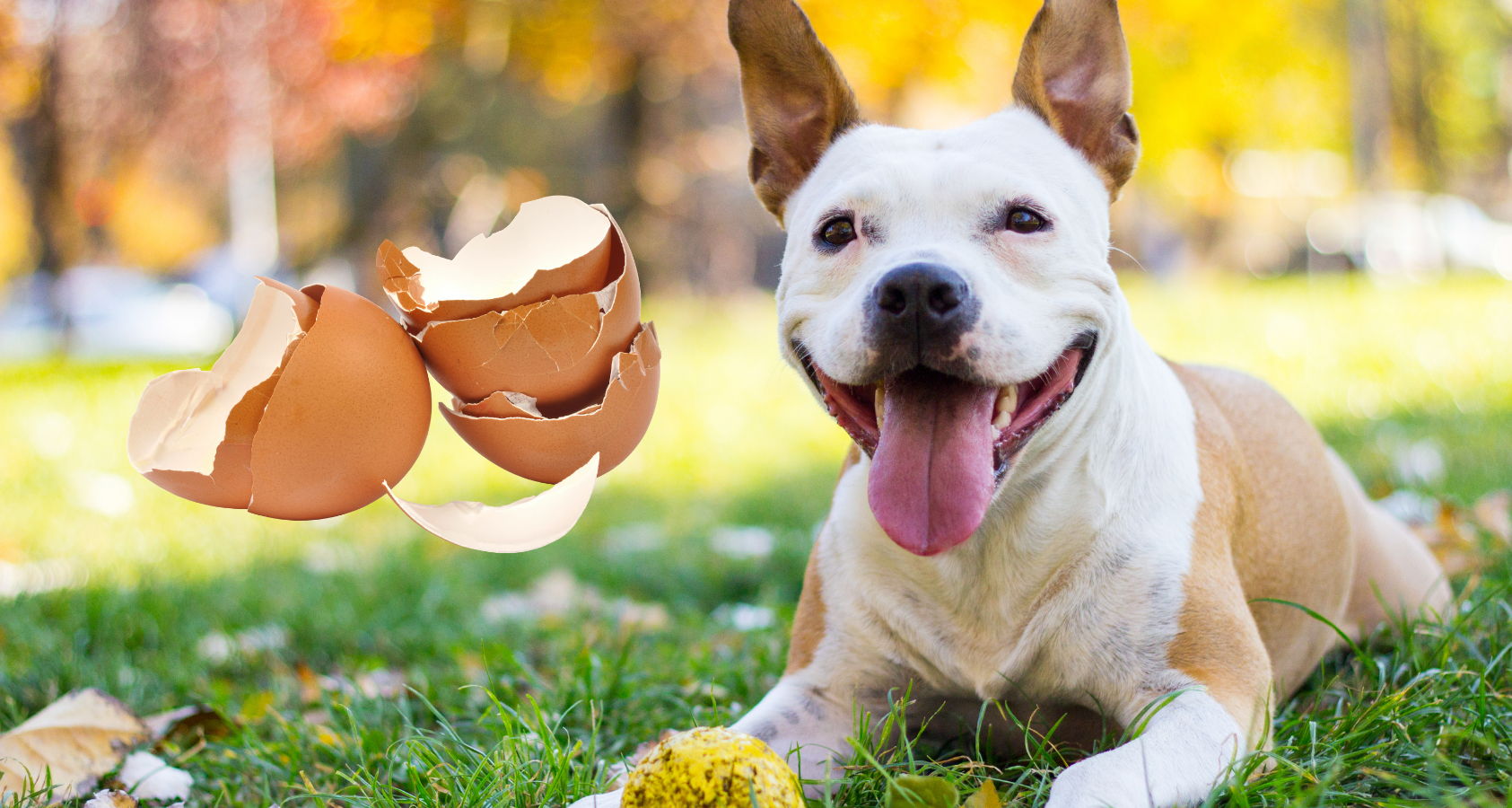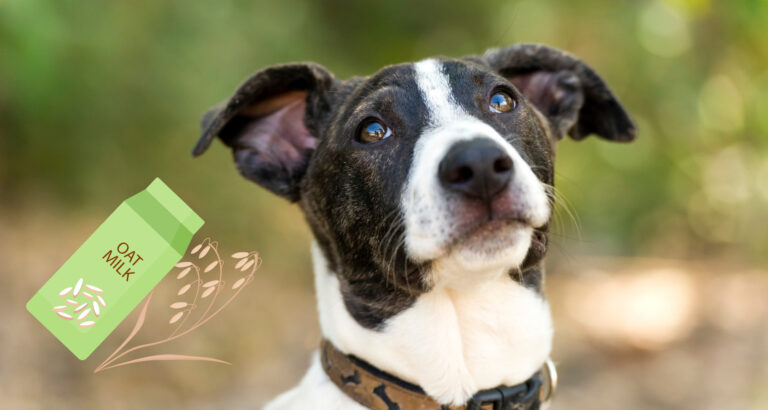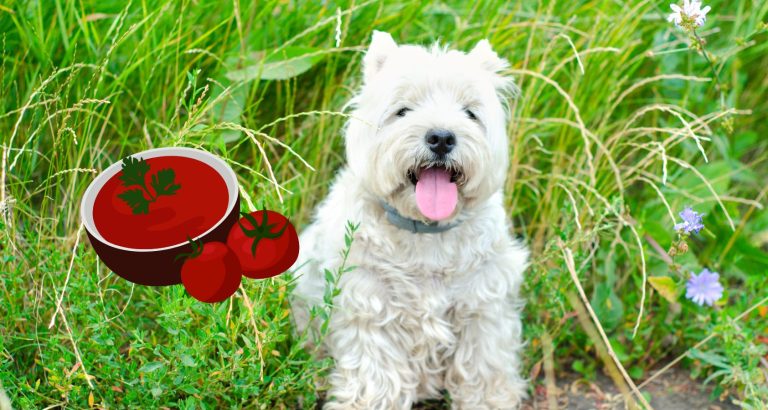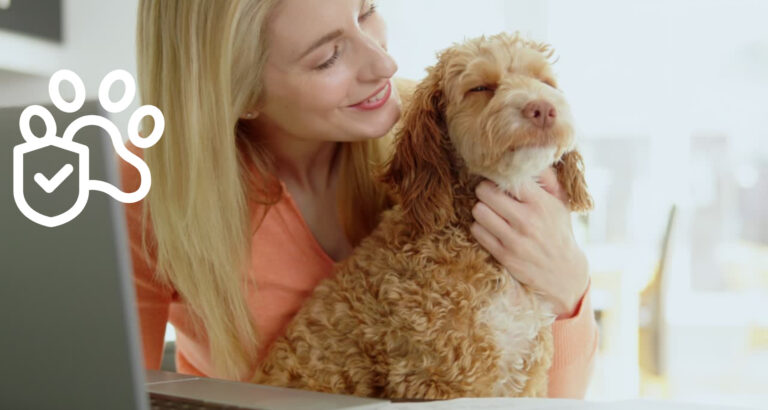Can Dogs Eat Eggshells? (Are They Safe)?
Last updated on March 23rd, 2023 at 06:56 am
Reading Time: 6 minutesThis post may contain affiliate links. If you click and buy we may make a commission, at no additional charge to you.
Can Dogs Eat Eggshells? QUICK ANSWER
Can dogs eat eggshells? The one-word answer to your worth wondering question is a big ‘Yes.’
Quick Answer
Dogs can eat eggshells as they are rich in calcium and protein that help grow the puppies. Their nutrients and minerals improve the quality of a dog’s life by strengthening their bones, teeth and reducing joint problems. Similarly, puppies have better immunity and fewer chances of older age bone problems.
Therefore, if you want to give your dog a healthy life, don’t be negligent in his calcium intake in the form of eggshells. This guide will tell everything about ‘Can dogs have eggshells?’ and solve all eggshell safety concerns. Above all, you will find the easiest way to prepare and save eggshells for later use.
So, why delay? Let’s get started!
Can Dogs Eat Eggshells?
Dogs can eat eggshells and get a considerable amount of nutrients and minerals to supplement their diet. Eggshells are also rich in calcium and protein that help in many ways to fulfill dogs’ requirements for ideal growth and strengthening of growing bones.
Here are some major benefits of eggshells for dogs:
- Eggshell membrane greatly helps to reduce joint pain and also improves joint function. If your dogs often have sore or painful joints because of muscle degeneration, it is ideal to feed with eggshells to cure bone problems. In fact, eggshells, on the whole, are significant for older arthritic dogs for high calcium content.
- A dog doesn’t need to have arthritis to feed eggshells, and puppies can benefit equally. Young or growing pets desperately need a calcium-fortified diet to strengthen their bones, and eggshells are purely organic and cheap.
- Dogs on a homemade diet require around 20% of their food to include raw meaty bones, but eggshells provide necessary calcium without the contamination risk of using raw bones.
- Being a dog parent, you cannot neglect your puppies’ teeth, and abundant calcium in eggshells also makes their teeth strong and healthy. As per experts, around 80% of dogs have signs of dental diseases when three years old. So, if you also want to make your pup’s teeth stronger, there is no better substitute than eggshells.
Are Eggshells Good For Dogs?
Eggshells are good for dogs in many ways and increase their quality of life. Similarly, eggshells provide nearly every nutrient and vitamin that increases your dog’s immunity to fight against diseases. Dogs fed with eggshells are less likely to experience aging problems. It is particularly effective in reducing joint stiffness and pain that dogs feel after exercise.
Now you know that eggshells are good and healthy for dogs, you must remember these two important things before offering eggshells in the meal:
1. If your dog reaches a bird’s nest and consumes all eggs over there, chances are he will not leave anything, including eggshells. Although eggshells are quite hard with sharp edges, his strong teeth help grind these eggshells.
Here is an alarming thing that you will find pieces of it later because your dog’s body cannot digest the large chunks of the eggshells. That is why always try to supplement your dog with ground eggshells. Ground eggshells also help the absorption of calcium and protein, so your fur baby gets its maximum benefit.
2. Secondly, if your dog is not on a homemade diet and feeds on kibble, special dog food, you need to reconsider and consult your vet for the necessary guidelines. Kibble-fed dogs get a healthy balance of necessary nutrients in their food, and they won’t require eggshells as a part of their diet.
Adding eggshells to their diet results in excessive calcium intake and may prove problematic. On the other hand, you can supplement a raw-fed dog diet like any other meal to boost their calcium intake.
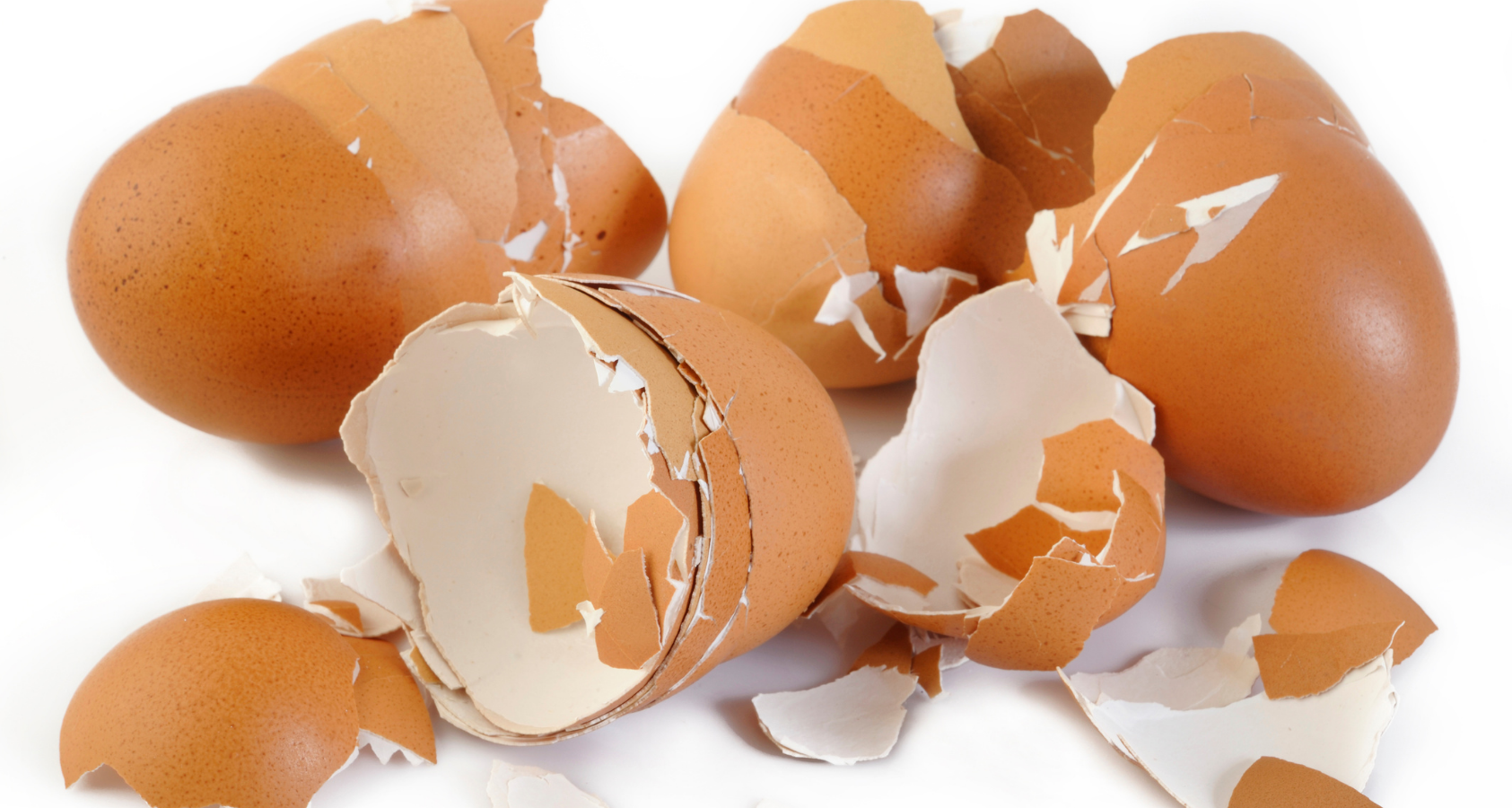
Can Dogs Eat Raw Eggshells?
Dogs can eat raw eggshells, but some health concerns are associated with their raw consumption. The problem increases when store-bought eggs are used. The store-bought eggs have been treated with many harmful chemicals to make them sleek and shiny, resulting in the loss of significant nutrients. On the other hand, farm eggs are organic and do not contain illness-causing pathogens.
Thus, If you want to give your dog raw eggs or eggshells, discuss it with your vet first. If the eggs go bad, they can grow bacteria that can harm your lovely pet. Similarly, some dogs are allergic to raw eggs and may show allergic reactions with symptoms such as swelling, sneezing, coughing, lethargy, and breathing difficulties.
At the same time, Salmonella infection is the prime concern with raw eggs, and dogs may get sick with it. It is also stated that this infection is uncommon in dogs, but there are chances of sickness.
The symptoms of Salmonella infections in dogs are:
- Fever
- Loss of appetite
- Diarrhea
- Vomiting
- Inactivity of the dogs
Plus, if your dog does not get infected, there is every possibility that he transfers infection to your family. Therefore, it is best to process eggshells before adding them to dogs’ meals.
How to Process Eggshells for a Dogs Diet?
It is quite easy to process eggshells and use in dog meals. Here are some easy to follow steps that will help to make eggshells ready:
- Put aside the eggshells as you prepare your breakfast and gather them in a basket. You can save these shells in the fridge but remember to wash and dry to prevent rotting and foul smell in your refrigerator. Keeping the eggshells in the refrigerator helps dry more, but an airtight container at room temperature also goes well until you have collected enough to grind.
- When at least a dozen eggshells are there in the basket, boil them to kill any pathogens. Air dry and then spread out on an oven tray. Preheat oven at around 200oF or 95oC and place the tray for approximately 10 minutes. Keep an eye on the shells to prevent burning, as this step aims to dry the shells, not to cook.
- After that, allow the dry eggshells to cool and prepare a grinder or food processor to make their fine powder.
- Now crush eggshells in portions until completely powdery. Ensure there are no large pieces as their sharp edges can hurt your dogs’ throat and left undigested.
- Similarly, you can use a mortar and pestle to crush the shells manually. You can even add eggshells in a Ziploc bag and crush them with a rolling pin. These manual methods can save you from having to clean an appliance later. Whatever method you opt to grinder, the end product should be finely ground to prevent choking. Now you can save the powder in an airtight container to prevent mold and use it for as long as two months.
Once you have your eggshell powder, sprinkle it on your dog’s regular food. You can also mix it in the food or give it a treat.
How Much Eggshell Powder Should I Give My Dog?
The amount of eggshell powder that you will give to your dog entirely depends on his size and the food he consumes. You need to add comparatively more powder for the larger dogs to give more calcium to the diet.
One large egg generally grinds down to one teaspoon of eggshell powder that weighs around 5.5 grams. This one teaspoon contains approximately 2000 mg of calcium. So, as a rule, for one pound of fresh food, you need to add ½ of a teaspoon of ground eggshells which equates to approximately 1000 mg of calcium.
Hence, you can decide the exact amount per your dog’s needs or talk to your vet about any uncertainty.
Conclusion – Can Dogs Eat Eggshells
Without any doubt, your concern about ‘Is eggshell good for dogs’ is not an issue. You have learned about the benefits and role of eggshells in your dog’s meal. Plus, follow the guidelines to use eggshells in the best possible manner and save your furry babies from any risk of contaminated food.
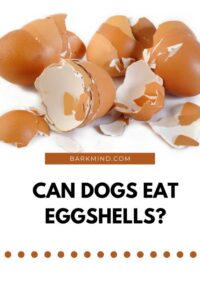
About The Author
I'm a content writer and researcher. But bottom line, I loveee animals. I had my first animal which was a guinea pig at age 8. Later had a bunny, dog and a lot, a lot of fish. Writing about what I know about pets will allow me to share my knowledge and love for them with everyone else. Dealing with dogs my entire life, I know a lot.

